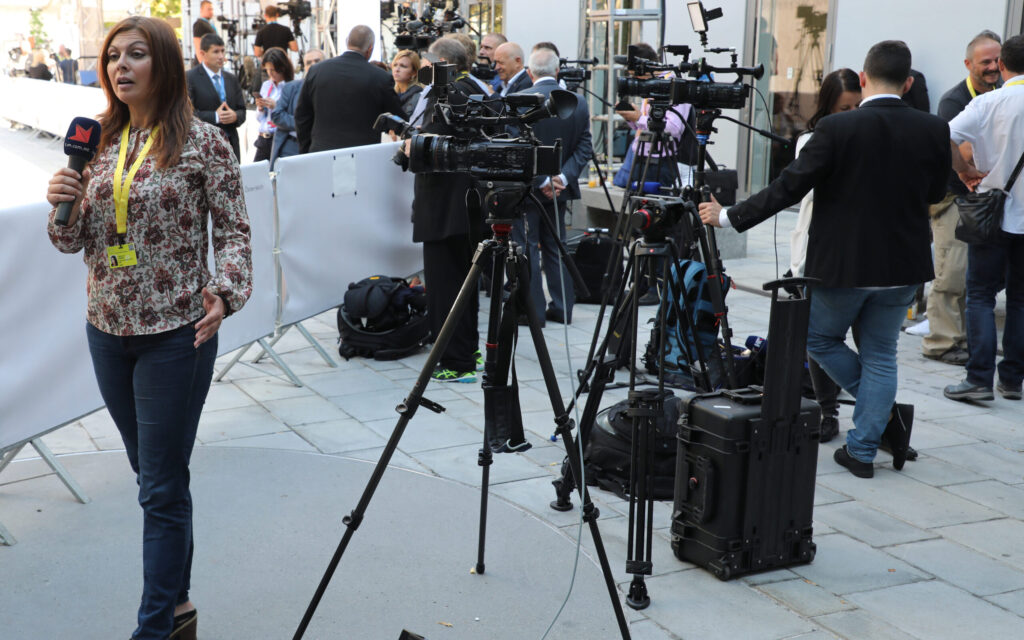Journalism

It’s a strange phenomenon: On the one hand, we Austrians are doing better than ever, but on the other hand, we are exhausted by the demands of daily life. And with an ever faster spinning whirlpool, we are getting deeper and deeper into the swamp. Into the swamp of anti-democratic decisions, into the swamp of the rejection of the four-pillar theory of the democratic state, into the swamp of corruption and free-mindedness.
Corona and the Russian invasion of Ukraine have made it clear where the journey is headed: to the digital state. “Digital capitalism, aptly called ‘dataism’ by Israeli historian Yuval Harari, tends toward the following imbalance: its innovations are essentially innovations by a small rich minority for another small rich minority,” the German daily DIE WELT recently wrote.
Dataism not only divides society, it also attacks it massively. In all areas. For example, the German Institute for the Future found in a study that up to one million Germans have become so mentally ill in the pandemic that they are at the same time socially inclusive and need to be cared for.
Paul Lafargue, in his “Personal Memoirs,” quotes Karl Marx as follows: “Working for the world.” Whether the founder of Marxism meant our global world of today is probably too far-fetched. But that we (should) work for a common world today, Corona has made very clear. Protectionist measures of the USA and the European Union against the great power ambitions of the People’s Republic of China are of little help.
This common action of states of different socio-political structures in the fight for the preservation of our world is important, is vital for our planet or to speak with Marx of our world.
This is world politics on a large scale, on a small scale it is about the relationship of people to each other. The percentage of all employees working in home offices has risen from twelve to 25 percent as a result of Corona. The crisis makes social differences more visible and exacerbates the problems of certain population groups. Home office is just not suitable for all occupational groups.
Domestic violence has been on the rise since the first phase of Corona-induced restrictions on public life. The effects of the viral crisis on the psyche are also enormous: the massive restrictions on everyday life promote the development of depression, anxiety and obsessive-compulsive disorders, and psychosomatic complaints in many people. Children and adolescents in particular also suffer from the crisis. Some studies conclude that they have been significantly worse off since the pandemic. Modern capitalism has found new ways and thus new victims.
And what do some journalists do in this situation? They tweet, in a journalist’s own bubble – regardless of the consequences, thus burying the reputation of their independence and objectivity.
So it’s no wonder that the credibility of politics and journalism in particular is suffering as a result of the pandemic. With the support of prominent figures from the judiciary and politics, a petition for a referendum on the rule of law and anti-corruption is being launched.
The petition is divided into five thematic blocks, which deal with more decency and integrity in politics, strengthening the rule of law, strengthening the independence of the judiciary, modern and comprehensive anti-corruption and transparency legislation, and in Chapter 5 with press freedom, media promotion and combating advertising corruption: “Diversity of opinion, also in the media landscape, press freedom and the public control function through quality and investigative journalism are among the basic pillars of a stable democracy and a robust constitutional state. With good reason, all of this has been incorporated into the European Declaration of Human Rights, and the European Court of Human Rights has confirmed it comprehensively and repeatedly. Advertising corruption, political dependencies and (party) political pressure on media are poison for democracy and the rule of law.”
As much as this petition for a referendum is to be welcomed, it also highlights an additional Austrian phenomenon. The anti-solidarity behavior and small-mindedness among journalists. While the anti-democrats insult all journalists as members of the “lying press” and colleagues are also physically threatened, journalists lose themselves in petty trench warfare and are thievishly happy when they can once again wipe the slate clean of a competitor within the industry. Regardless of whether it’s true – or not. In times like these, the conscious independence of journalism is on the wane, and partisanship is on the rise.
Portisch, Nenning, Molden and Pollak would probably turn over in their graves if they could follow the development in journalism today. They practiced solidarity across all party and organizational boundaries – for independent, democratic journalism in Austria. (FT)
